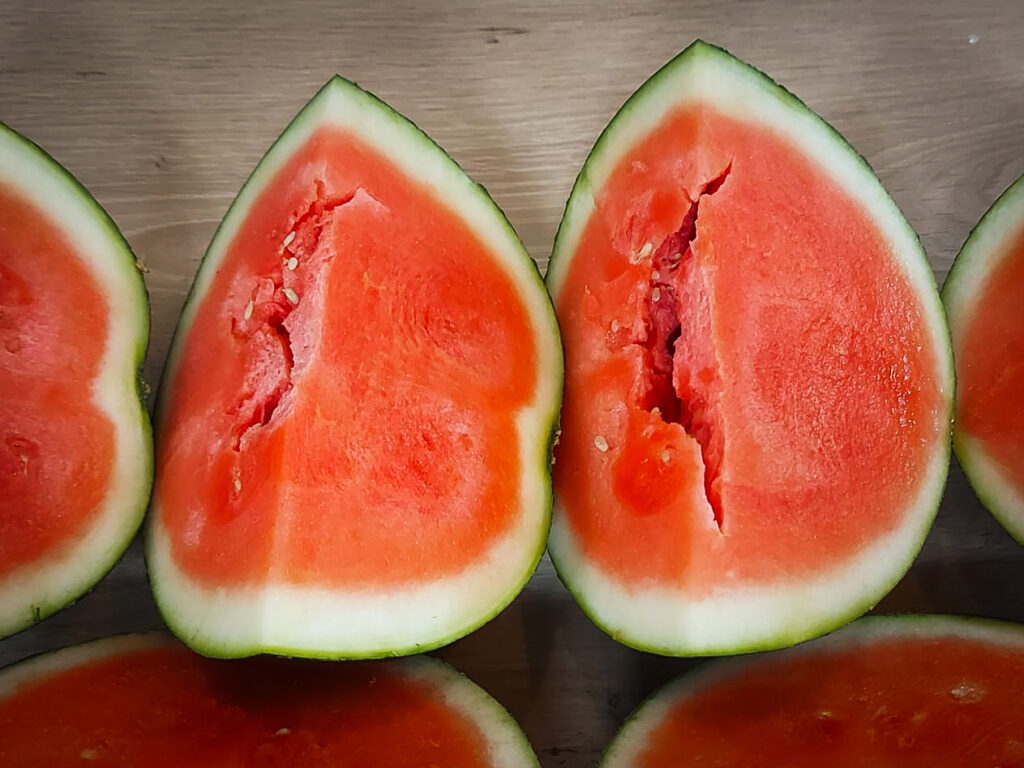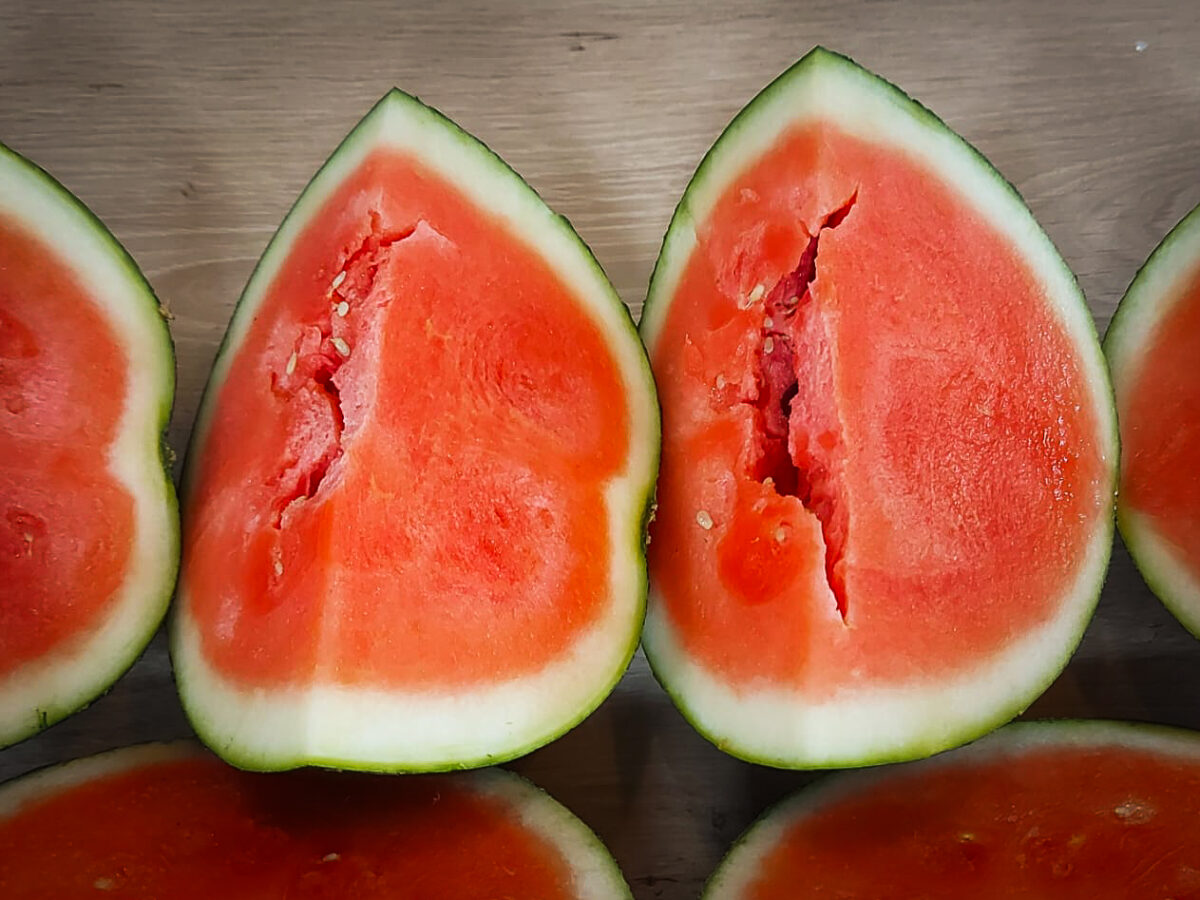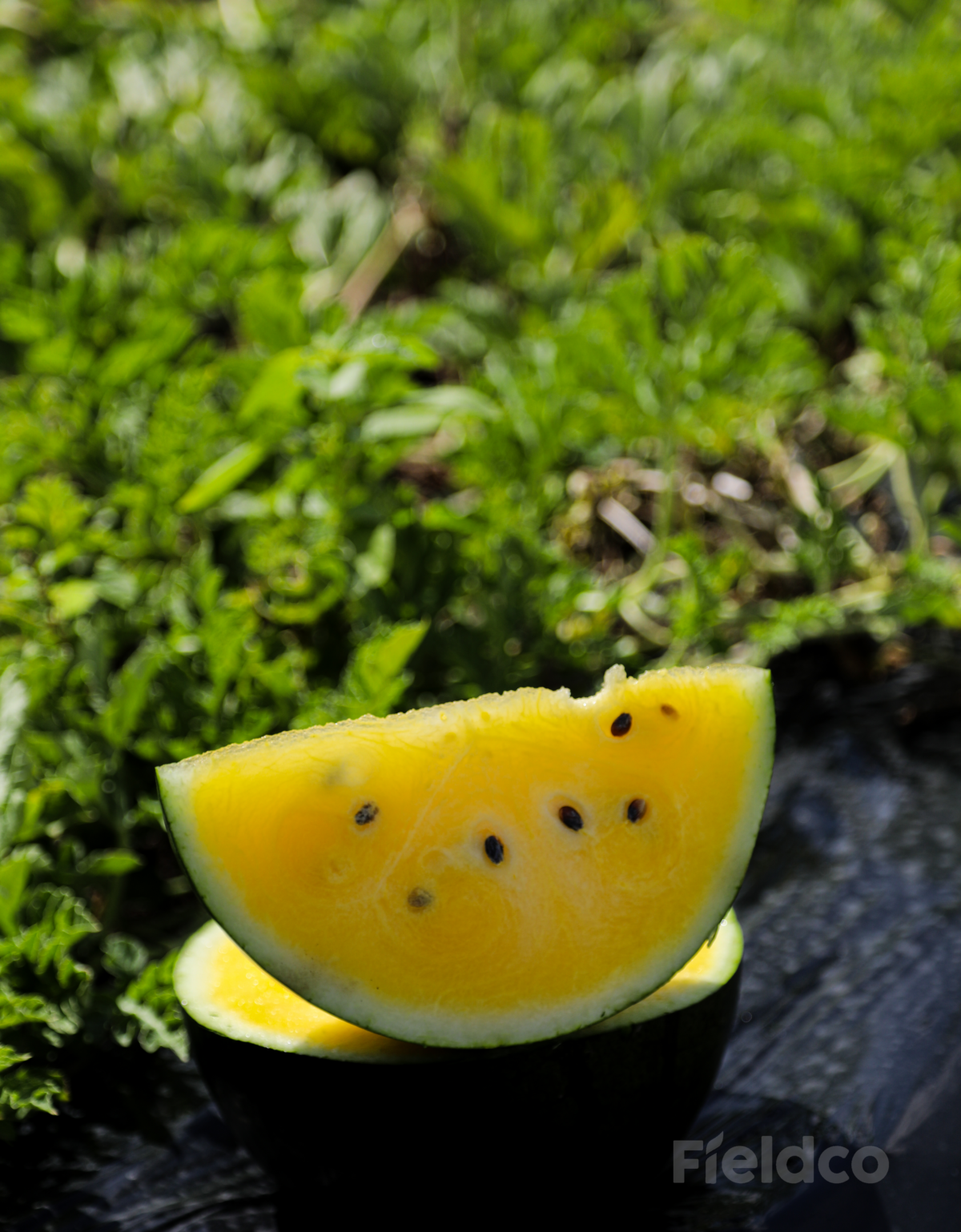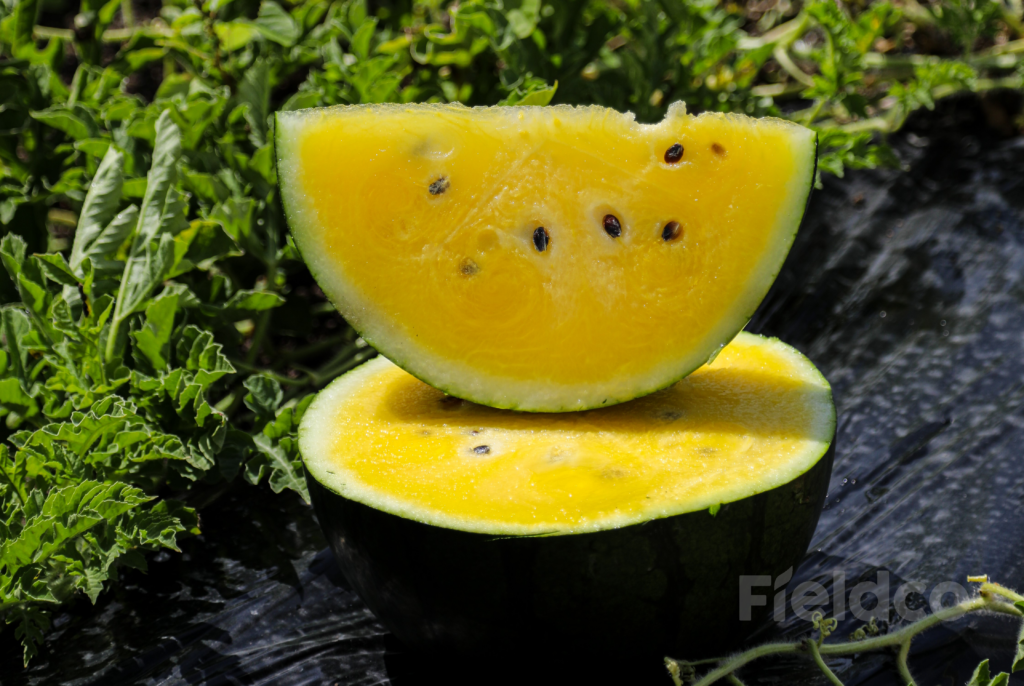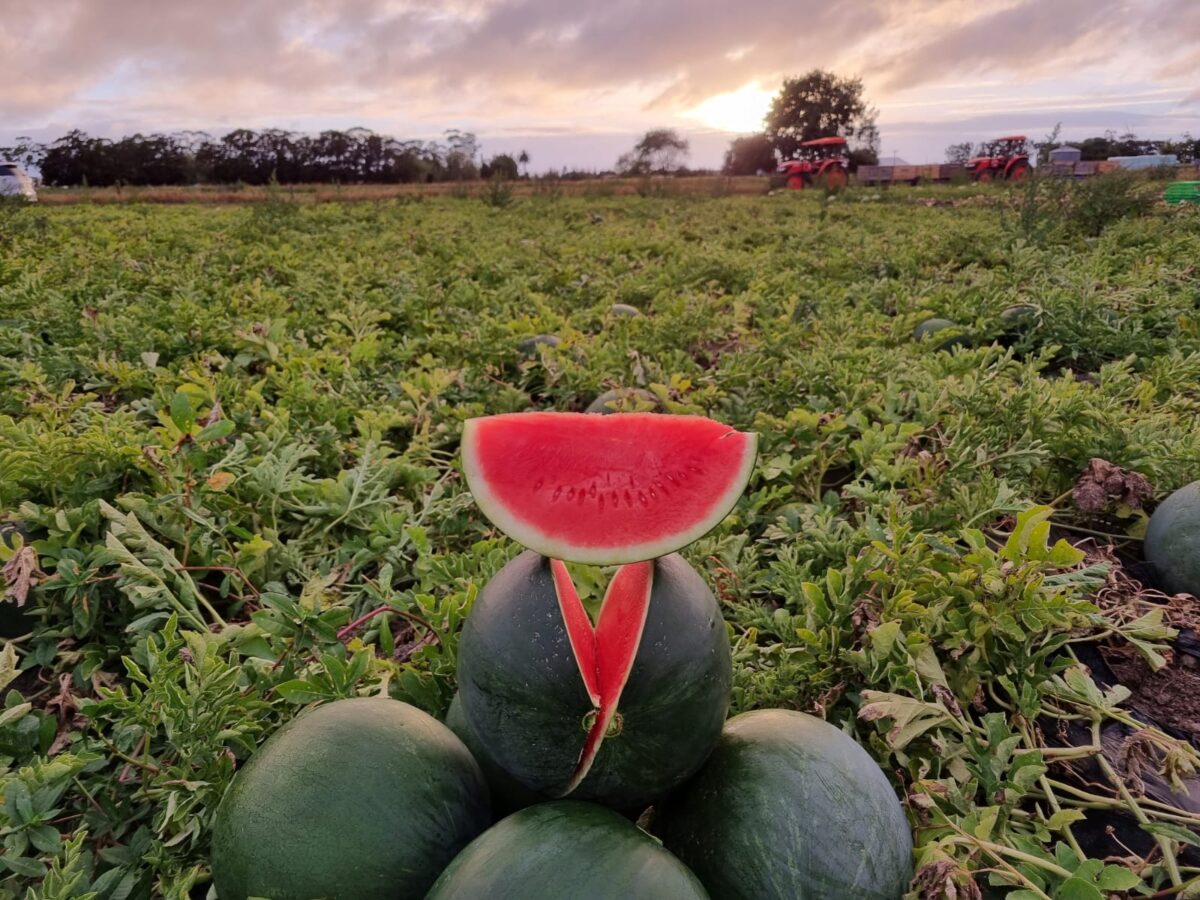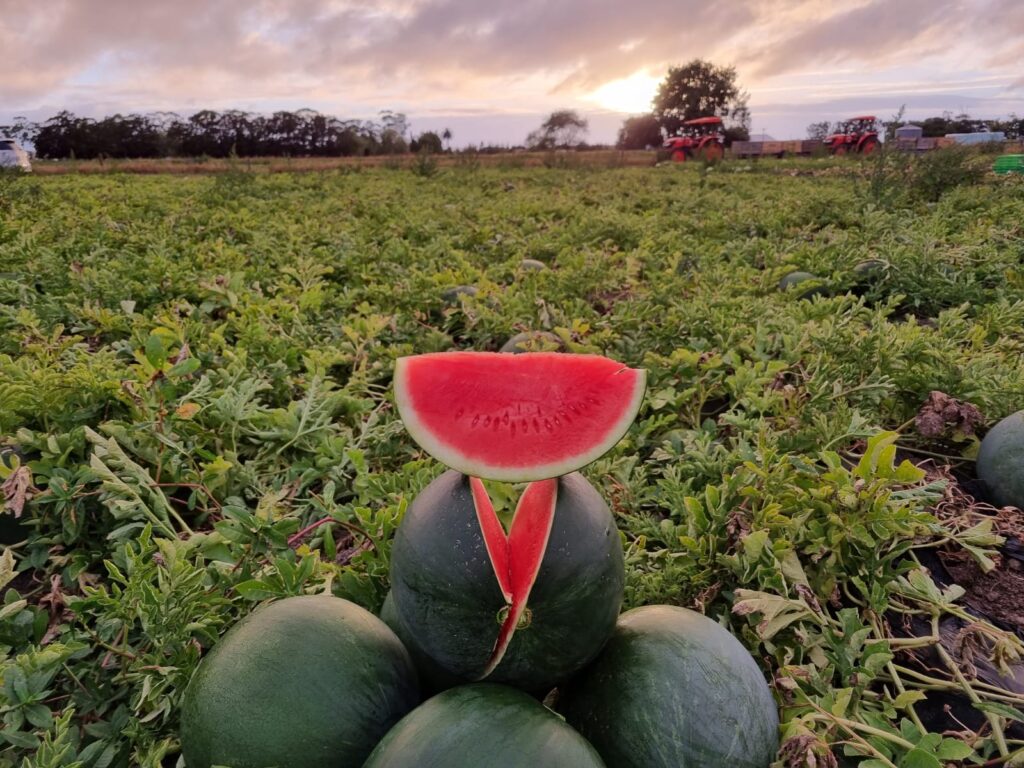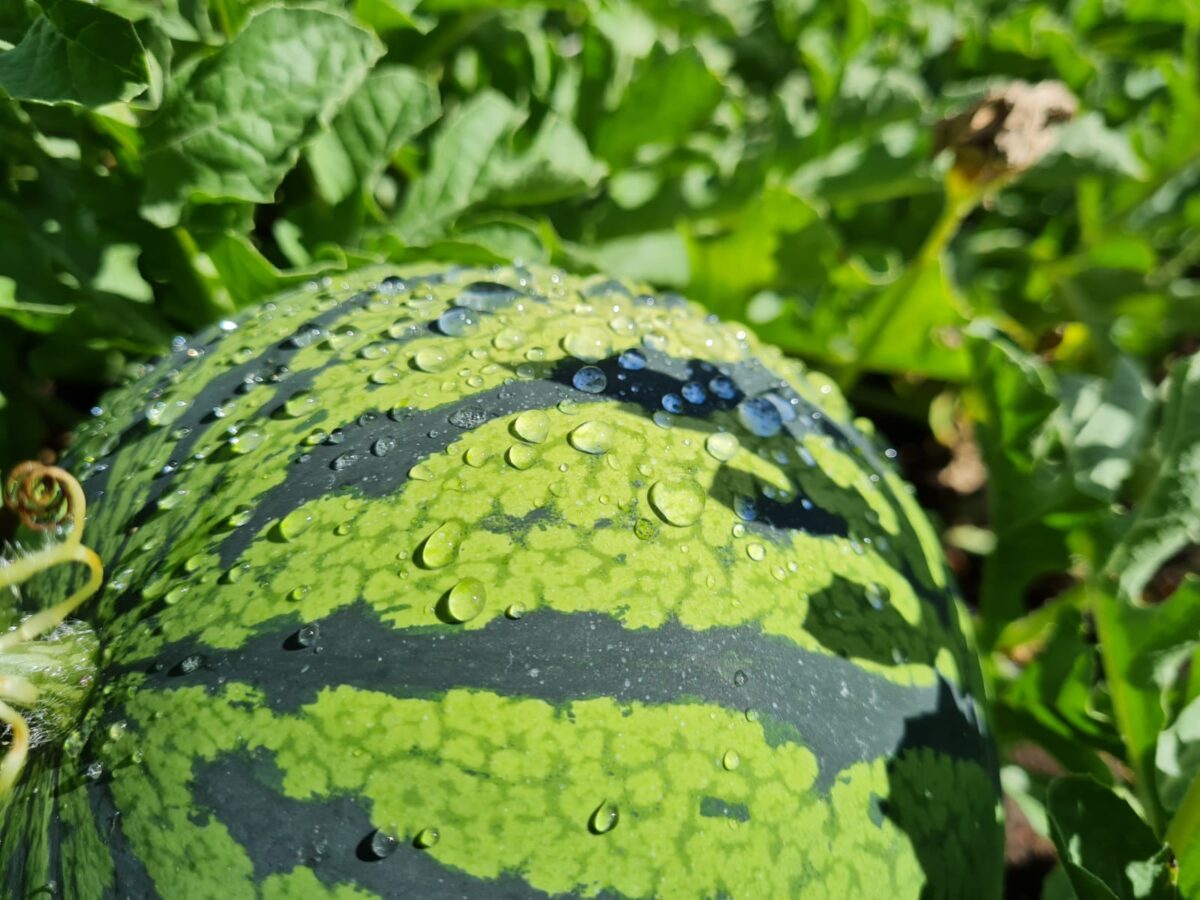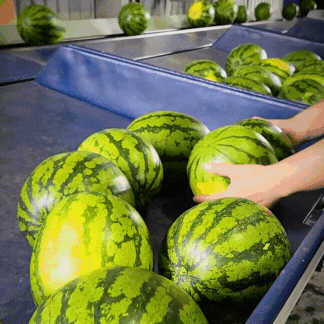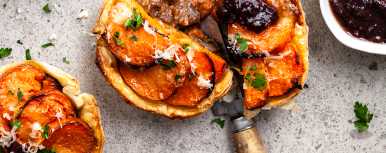While we all love to enjoy a slice of juicy watermelon, sometimes the melon you buy sometimes doesn’t look quite so enticing as the next one…
We thought we’d uncover the phenomenon of Hollow Heart – what it looks like, what causes it, and if the fruit is still safe to eat.
So what does Hollow Heart look like?
This is when the inside of the watermelon has hollow cracks in the inside. In minor cases this will show in small splits, in major signs are shown by the flesh separating in triangle shapes.
And what is the main cause of Hollow Heart?
This does come down to poor pollination. Often cases, this will happen in seasons during the time of critical pollination it is rainy or overcast weather so the bees aren’t as active to transfer pollen from plant to plant. Sometimes it can come down to just a season where the bees aren’t as active or the pollination isn’t as good.
It’s also important to have good water and fertility management in the critical growing stages of the melons to ensure they the inner fruit cells keep pace with the expansion of the rind. That’s why here at Fieldco, we have a dedicated team of expert long-term planters and teamleaders to help keep an eye on our fields and do regular checks in the growing phase to ensure they get the nutrients they need as the fruit fills out.
So the most important question is…are Hollow Hearted Watermelons safe to eat?
The answer is a firm yes. As Hollow Heart mainly stems from a pollination problem your watermelon will be safe to eat. In fact, most times it will be a sweeter tasting melon because the natural sugars are concentrated along the cracks in the flesh.
Perfect for whizzing up in your processor to make a melon cocktail or diced into a summer salad!
